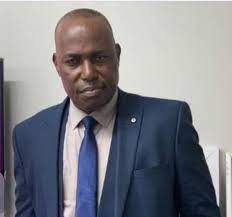By Martins Oloja
Let’s not be deceived, democracy can’t work here. I am serious about this conviction that democracy can’t deliver growth that can develop Nigeria to lead the black race as predicted by the iconic Nelson Mandela. Madiba was so worried for Africa before he joined his ancestors in 2013 and he noted that the world would not respect Africa until Nigeria earned that respect and the black people of the world would need Nigeria to be great as a source of pride and confidence.
I am beginning to see that the democracy that our democratically elected leaders have been hailing since 1999, for instance, has not elicited any glimmer of hope that Africa’s most populous nation would be able to live up to the dream of leading Africa to rise. Africa and indeed the black race may have been waiting for Godot that Samuel Beckett says may not appear, after all, no thanks to our dealers who call themselves leaders. Relax, I am not suggesting here the next election should not hold. It is an idea whose time and season have come. There will be an election.
But there are doubts that the 2023 elections in the first quarter of next year will bring peace and development to Nigeria. Reputation managers of candidates, relax. This isn’t casting aspersion on our election candidates. They are our brothers and sisters who will be elected. This is just a reflection on the expediency of managing our expectations at this time. And so I have looked into the seeds of time again. I have read so many recent writings on the wall. What I have seen and would like to transmit is this: ‘Blessed are you if you are hopeless, for you shall not be disappointed. Don’t get it twisted, the election may be freer and fairer. Technological advancement may prevent large-scale electoral malpractices. There is also a sense in which one can claim that our election management agency, INEC has improved tremendously in its internal governance system. It appears to have restored confidence in the electoral system.
That has manifested somehow in the way even our young ones have shown genuine interest in the next leadership recruitment process called elections. But I just want to encourage some debate on whether we should just see hope from the outcomes of the 2023 elections that will produce the next president, more than 30 governors, 109 senators and 360 members of the House of Representatives and some hundreds of members of State Assemblies in the 36 states of the fragile federation.
I am beginning to reflect on how democracy may not be safe in Nigeria, after all. I mean who will save democracy that will prevent this troubled federation from damnation? I am talking about a democracy that has made Nigeria the world’s poverty capital. Let’s reflect on how not to crash a democracy that has made the people unsafe even in the land of their births just within 23 years of the unbroken democratic process. I would like us to think through a democracy that has produced the most expensive parliamentarians in the world. I mean national assembly members in one of the poorest nations on earth who earn higher than the president of the richest nation. Let’s talk openly therefore about how to engage the 2023 candidates to tell us how they want to engage democratic institutions and processes to deliver Nigeria from the curse of oil we produce that can’t deliver prosperity and good life to the people.
Where is that oil-producing nation in the world whose system of government failed to deliver wealth? Where is the oil-rich nation that can’t refine its crude for domestic use? Where is that member of the Organisation of Petroleum Exporting Countries that has failed to maintain four refineries and has become a petroleum-importing country? Never in the history of mankind has a democratic and oil-producing country been so mismanaged to the extent that all critical sectors, energy, transportation, education, health, financial services, media, etc have collapsed and the duty bearers called leaders have become so clueless about how to even apologise to the citizens on their poor offerings and incompetence.
I would like all of us who believe in the future of Nigeria to bear this in mind as we glide towards yet another election cycle. I mean before we doze off, we should realise that unless we renew our minds and get ready to fight the principalities and powers that have made Nigeria a laughing stock, nothing will change after the elections. Democracy isn’t about regular elections. I mean I have been reflecting on a researcher who has just deconstructed the mess democracy is creating around the world. Claude Forthomme, a writer and economist once at the United Nations (Food and Agriculture), says: ‘Democracy doesn’t work. Just as I, too, am beginning to see: Plato thought it (democracy) was a terrible system, a prelude to tyranny, giving power to selfish and dangerous demagogues.

Watching what is happening these days in democracies around the world, it’s hard to disagree with Plato. Claude believes too that, “democracy appears to produce an abundance of incompetent and dishonest political leaders, who exploit people’s credulity and prejudices and thrive on emotion-driven discourse and fake news”. This Impakter contributor looks at the problems and proposes that people should have the courage to implement radical reforms to save democracy in a global context.
‘The rise of incompetent political leaders most.
people don’t trust democracy to deliver. According to a 2019 Pew survey, trust in government is at a historical low: only 17% of Americans today say they can trust the government to do what is right “just about always” (3%) or “most of the time” (14%). The situation in the rest of the world is not much better.
A 27 countries Pew survey (April 2019) revealed that a majority (51%) are dissatisfied with the way democracy is working. Anti-establishment leaders, parties and movements have emerged on both the right and left of the political spectrum. And most people in developing countries find authoritarian figures more trustworthy than democratically-elected politicians. Hence the success of the “China model”. The bottom line, elections don’t deliver the kind of political leaders people want.
After a honeymoon period between voters and their winning candidate, often as short as a month, he or she always disappoints. Why? Is it the fault of the voters who expect too much? Or don’t they understand what is going on – how complex the job of governing can be, how campaign promises can’t be kept? It has been convincingly argued that, yes, it’s the voters’ fault. Dambisa Moyo, the well-known Zambian economist and author of ‘Dead Aid’ (2009) in which she famously argued that foreign aid made Africa poorer, placed the blame squarely on voters: “Voters generally favour policies that enhance their own well-being with little consideration for that of future generations or for long-term outcomes. Politicians are rewarded for pandering to voters’ immediate demands and desires…” This quote is from an article she wrote for ‘Foreign Policy, when her new book came out in 2018, ‘Edge of Chaos: Why Democracy Is Failing to Deliver Economic Growth – and How to Fix It’. The article sums up her book’s arguments.
In a nutshell: “Because democratic systems encourage such short-termism, it will be difficult to solve many of the seemingly intractable structural problems slowing global growth without an overhaul of democracy.”Let’s put aside for the moment the question of whether our overall goal should be “global growth”: A good argument could be made that the unrestrained pursuit of continued economic growth in a world of finite resources (and where there is no Planet B) can only be achieved at the expense of the planet’s ecological balance.
Yes, climate change is real, have you heard? Ms. Moyo appears not to consider the possibility. But she does make some excellent points regarding “governance” – how we humans govern ourselves. And in particular, governance in a liberal democracy which is (still) considered, to use Churchill’s phrase, the least bad system. The actual quote is: “Indeed it has been said that democracy is the worst form of Government except for all those other forms that have been tried from time to time…’ Obviously, democracy is always better than dictatorship. So what are the obstacles to good governance? Let’s list the obstacles Moyo has identified – plus a few of others I believe in.
(1) Too many elections: She sees “the short electoral cycle embedded in many democratic systems” as a major problem: “Frequent elections taint policymaking, as politicians, driven by the rational desire to win elections, opt for quick fixes that have a tendency to undermine long-term growth.” This “public and private myopia”, she contends, is behind the collapse of American infrastructure; she cites the 2017 report by the American Society of Civil Engineers (ASCE) that found 2,170 high-hazard dams, 56,007 structurally deficient bridges (9.1 percent of the nation’s total), and estimated that $1 trillion was needed to upgrade drinking water systems over the next 25 years. The same can be said of European infrastructure: the collapse of bridges in Italy, notably the Morandi bridge in Genoa is a case in point; Germany with its aging highways and insufficient airports is in no better shape;
2) Interest group lobbying: This is something Moyo highlights: Politicians respond to the demands of their funders instead of their voters; this can destroy democracy, resulting in the One Percent governing the 99 Percent; or, as Moyo puts it: “It is the use of wealth to influence political outcomes that help inequality take root. Until democracies push back on the use of wealth to influence elections and policies, initiatives to address inequality will be blunted”; This looks like Nigeria too.
(3) Voter ignorance and disinformation: As Peter Coy, the economics editor for Bloomberg despairingly noted in a review of Moyo’s book, “voters can be tribal and poorly informed”, and he cites a survey from the Annenberg Public Policy Center (U. of Pennsylvania) that found that out of 1,013 U.S. adults only a quarter could name all three branches of government. In Moyo’s words: “The proliferation of personalised media diets increasingly means that voters cling to their own facts, assumptions, and beliefs.”
By “media diets”, she means how people live in their own “bubble”, only listening to like-minded people. This raises the whole question of fake news, a complex subject covered by anthropologist Hannah Fischer Lauder in an Impakter essay, Why fake news go viral” (2016) published after Trump had unexpectedly won the 2016 elections.
Now we know that it was largely a result of expert online manipulation of voter opinions, guided by the now infamous Cambridge Analytica’s techniques for targeting voters. Doubtless, there can be a more sophisticated strategy than Cambridge Analytica in Nigeria’s 2023 elections if we doze off again. That is why we should not just agonise about the pitiable conditions that democracy has put Africa’s most populous nation and hope of the black race. We should organise to ensure that the candidates who will begin campaign shortly tell us how they intend to change our unitary, complicated constitution to reflect a true federation in which true federalism can enhance coherence to rebuild the unity walls our leaders (1999-2003) have destroyed.

















